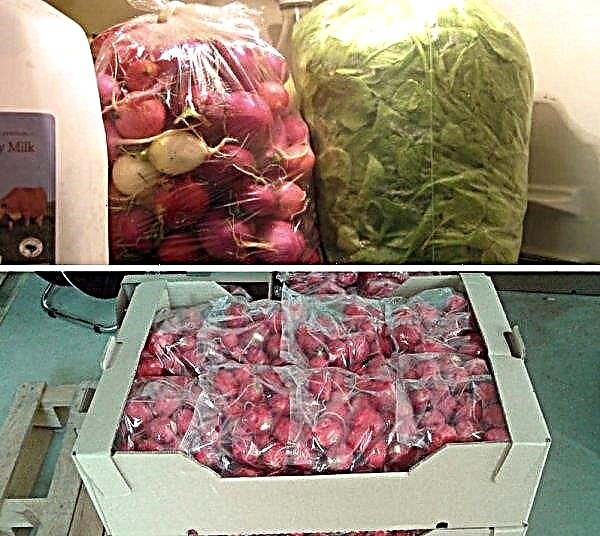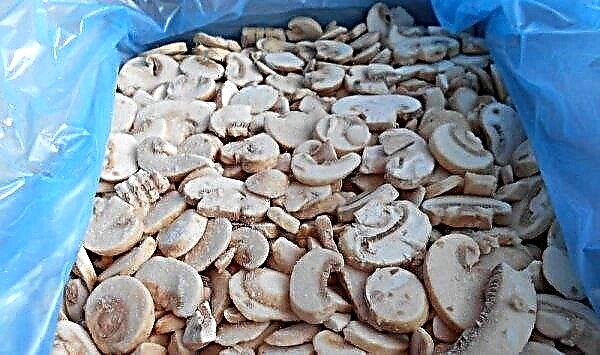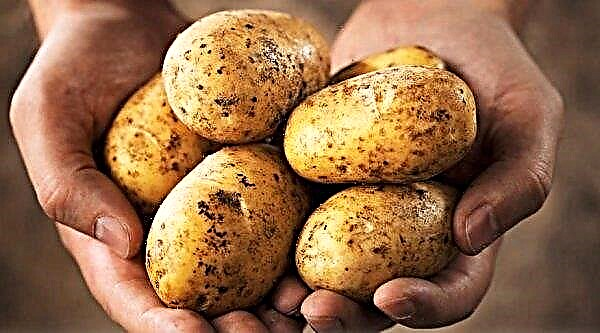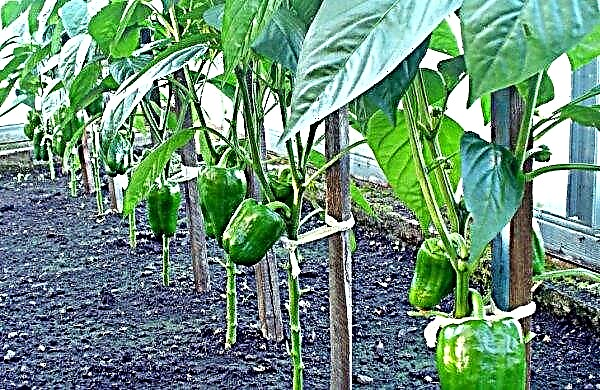By the end of summer, melons appear on the shelves in abundance. There are many varieties of this gourd, but the main thing that every customer focuses on when buying is the sweet taste. However, it happens that the fruit that is ideal in appearance and smell is bitter, partially or completely. Find out what is the reason for the change in taste and how to reduce the likelihood of choosing a poor-quality fruit.
Possible Causes of Melon Bitter
All the existing reasons for the appearance of bitterness in the pulp of melon can be combined into one group - violations of the agricultural technology of growing crops. But there is one reason that stands apart. It is associated with the variety of the fetus.
Did you know? The name "momordica" comes from the Latin "momordicus" (biting, prickly). Most likely, this is because until the fruit ripens, all parts of the plant are burning, like nettles.
Bitter grade
There is a variety of bitter melon - momordica. This is a herbaceous plant widely distributed in Asia; It is often called Chinese melon or Indian cucumber. Momordiki has little in common with ordinary melon, since they belong to the same family, but to different genera. The presence of bitterness is normal for her. Her seeds are also bitter.

Violation of the rules for growing the fetus
Melon is a thermophilic and sun-loving culture, therefore, when grown in cold regions, it requires more careful care. Lack of heat and excessive moisture lead to spoilage, and, accordingly, to the appearance of a bitter taste.
Often when growing melons in greenhouses or on large farms, mineral fertilizers such as nitrates are used. They are necessary to accelerate growth, improve keeping rates, and control pests. In small quantities, they do not affect the taste of the fruit and do not remain in it, but if they get into the soil in excess, they are able to accumulate in some parts of it, which can cause bark and flesh near it.
Often the cause of bitterness is an ailment called fusarium. Although modern breeders are trying to develop varieties resistant to its pathogen, low temperature and high soil moisture provoke the appearance of this fungus.Important! It may be that the fruit was grown according to all the rules, but, having lain on a counter by the road, it began to grow bitter. This is due to the fact that the melon is able to absorb heavy metals and chemical compounds from the air. Therefore, do not buy products in such places.

It can infect the roots when it hits a plant or fruit from the soil if infected seeds are acquired or through peel damage. In the latter case, the flesh may be bitter in one place, near the defect, but in general the quality of the flesh will not be up to par: not juicy, slightly aromatic, less sugary.
Ankaraz disease is another reason why melon flesh has a bitter taste. Most often, the fruits affected by this type of fungus have a normal appearance, but when they are cut, the flesh turns brown around the seed chamber, and the seeds themselves are painted in this color. The disease also appears on the skin, in the form of brown spots; they can be located at the tail or over the entire surface.

Chemical composition
The composition of this product is diverse and beneficial to health.
| Element | 100 g amount |
| vitamin PP | 0.4 mg |
| beta carotene | 0.4 mg |
| Vitamin A (RE) | 67 mcg |
| vitamin b1 | 0.04 mg |
| vitamin B2 | 0.04 mg |
| vitamin b5 | 0.2 mg |
| vitamin b6 | 0.06 mg |
| vitamin b9 | 6 mcg |
| vitamin C | 20 mg |
| vitamin e | 0.1 mg |
| calcium | 16 mg |
| magnesium | 13 mg |
| sodium | 32 mg |
| potassium | 118 mg |
| phosphorus | 12 mg |
| chlorine | 50 mg |
| sulfur | 10 mg |
| iron | 1 mg |
| zinc | 0.09 mg |
| iodine | 2 mcg |
| copper | 47 mcg |
| manganese | 0.035 mg |
| cobalt | 2 mcg |
| fluorine | 20 mcg |
Did you know? Every year, 8 million tons of melons are grown in China - a quarter of the world's production.
A fraction of one or another of the above elements can affect the taste of the fetus, but not significantly. Basically, the level of sweets is regulated by carbohydrates. The sweetest varieties contain not less than 13% of these substances - accordingly, the less carbohydrates, the more bitter the taste of the pulp.
Can i eat
Regarding whether it is possible to eat melon, if it is bitter, opinions differ. Some people think that it is better to beware of such a product, while others suggest that if it is spoiled by bitterness, but not all, then the normal part is possible.
For the sake of taking care of your health, it’s worthwhile to take the rule: no matter how delicious the melon, it is better to abandon its use if it has a bitter taste. The cause of spoilage cannot always be precisely determined, therefore, in order to protect yourself from stomach problems that may arise due to oversaturation of the fetus with nitrates or the onset of a putrefactive process, it is better not to risk it.
Important! Of the fruits that are bitter, only bitter melon, momordica, in any form, is suitable for food. Seeds and other parts of this plant are often used for medicinal purposes.
How to choose a melon
To be less likely to encounter such a problem as bitterness, you need to be able to choose the right product:
- Ripe gourds will always have the aroma of honey, vanilla, pineapple, pear. If there is no smell or it is weak, it is better to refrain from buying.
- Upon external inspection, the surface should be free of defects. Pathogenic bacteria can easily enter through cracks, dents, and scratches, for the reproduction of which a sweet environment is ideal.
- When patting a ripe fruit, a muffled sound should be heard.
- In a ripe product, the stalk is dry, and if you press on the skin with your fingers, it will slightly spring.

Thus, most of the causes of melon bitterness can be eliminated at the growing stage - therefore, if you are growing a crop yourself, follow all the rules of agricultural technology. If you buy it, then follow the rules for choosing a ripe fruit.













